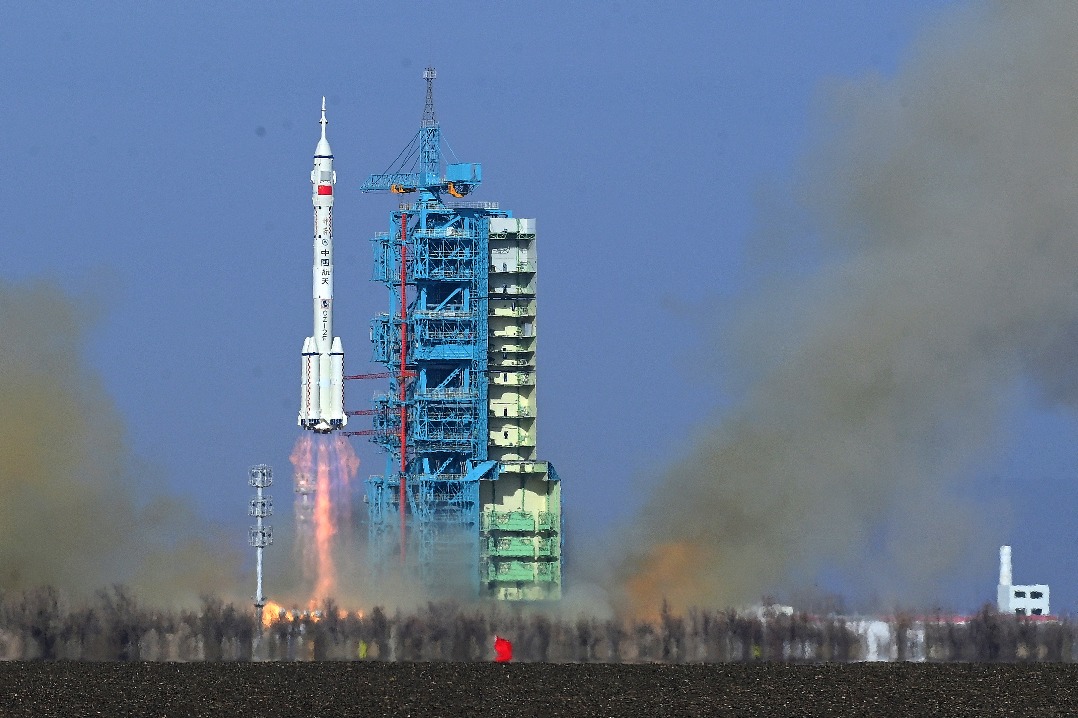Shanghai police expose luxe car insurance scam

Shanghai police have uncovered a major insurance fraud scheme involving staged accidents using second-hand luxury cars, with the case value exceeding 100 million yuan ($14 million) and more than 80 suspects detained.
The case involved three tightly connected criminal groups with clear divisions of labor. One group, posing as a rental business, bought pre-owned luxury cars through financial leasing companies with low down payments and loans, and hired drivers to deliberately cause traffic accidents. A second group, which operated a bogus auto repair shop, created the illusion of total losses by damaging core components or conducting secondary destruction when needed. A third group pressured insurers into paying by filing malicious complaints, visiting company offices to make threats, and harassing staff members. After payouts were made, the groups split the proceeds according to preset ratios.
Authorities said the case was part of a national operation targeting illegal and quasi-illegal sectors in finance, jointly launched in March by the Ministry of Public Security's economic crime investigation bureau and the inspection bureau of the National Financial Regulatory Administration.
In May, Shanghai police, working with regulators and insurance companies, detected anomalies in auto insurance data: total loss rates for luxury cars deviated significantly from industry averages, and claimants were not the car owners but an intermediary group.
Yi Bowen, an officer with the Shanghai Public Security Bureau's economic investigation division, said a group of self-proclaimed intermediaries repeatedly harassed insurers, claiming to represent car owners involved in accidents and demanding excessively high settlements.
Investigations revealed that the collisions were likely staged to obtain inflated insurance payouts. The suspects bought 5- to 6-year-old used luxury cars on the market at roughly one-third the price of new vehicles and used financial leasing channels to secure loans under the guise of operating a luxury car rental business. Since luxury models typically incur high collision repair costs, they created sizable profit margins for fraud.
After acquiring the cars, the group hired drivers — mostly new migrant workers in Shanghai with truck-driving experience — through middlemen. Drivers were offered tens of thousands of yuan as rewards to deliberately cause accidents. Most crashes occurred within two days of the drivers taking possession of the cars, Yi said.
To avoid detection, the drivers targeted large, rigid-framed vehicles such as vans or SUVs, choosing remote roads at night and driving at moderate speeds to keep themselves safe while inflicting severe damage on the luxury cars.
After the collisions, the second group stepped in. Operating from a suburban "repair shop" that housed rows of damaged and used luxury cars, members focused solely on insurance assessments rather than repairs.
Huang Miao, another officer with the division, said the group would first conduct a superficial inspection to determine whether the initial crash qualified as a total loss. If not, they carried out secondary damage to push the car into total loss status. "They knew which parts carried high compensation value. Sometimes damaging a single component was enough for the car to be deemed a total loss," she said. The site functioned purely as a base for loss assessments, dismantling vehicles while awaiting insurance inspections.
A vehicle is generally considered a total loss when the value of damaged parts reaches 50 percent of the claim amount. If insurers refused to pay and requested a second inspection, the third group took over negotiations.
Insurance companies reported that the claiming group consistently refused reinspection requests and demanded settlements far above market value rates based on the repair shop's inflated price sheet. Members also harassed insurers by broadcasting recordings on loudspeakers accusing companies of "refusing to pay and bullying ordinary people" and by visiting office premises to disrupt normal work.
From May to November this year, Shanghai police launched a series of operations, arresting more than 80 suspects. Investigators found the three groups had fabricated more than 100 million yuan in fraudulent claims dating back to 2020.
So far, 17 suspects have been approved for arrest on charges that include insurance fraud, fraud, and provoking trouble. The remaining suspects are under criminal compulsory measures.
- Shanghai police expose luxe car insurance scam
- SPC asks courts to target dual contracts to curb tax evasion
- Harbin's winter wonderland takes shape with record use of ice and snow
- Domestic violence cases have declined since 2021
- National Games fuel cross-boundary travel in GBA
- Scientists estimate plateau's water reserves







































